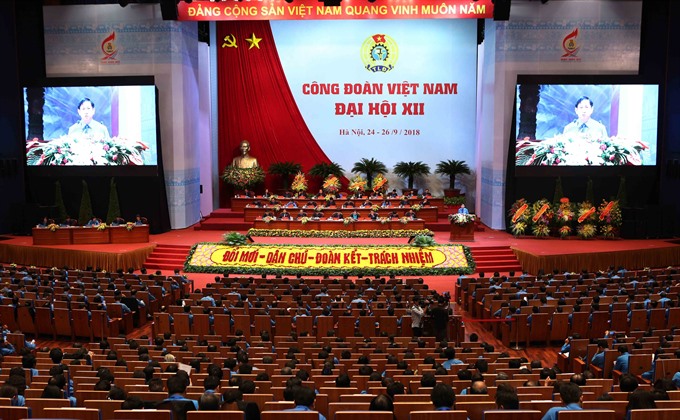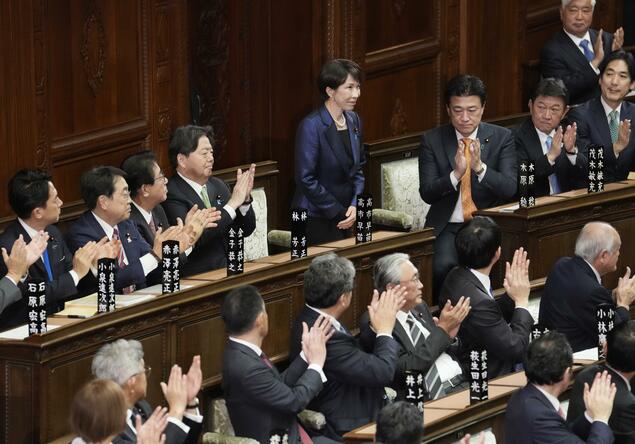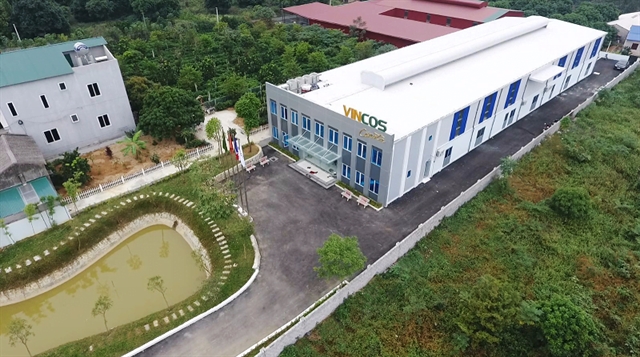 Politics & Law
Politics & Law

Low labour productivity in Việt continues to command attention at a forum in Hà Nội on September 24 that focused on Vietnamese trade unions’ support for the Government’s efforts to improve national competitiveness and sustainable development.
 |
| An overview of the 12th Congress of the Việt Nam General Confederation of Labour (VGCL), opening in Hà Nội on Monday. Some 950 delegates representing over 10 million members of all-level trade unions nationwide gathered at the congress to discuss important issues related to employees and trade union activities for the next five years. — VNA/VNS Photo |
HÀ NỘI — Low labour productivity in Việt Nam was a topic of discussion at a forum in Hà Nội on Monday that focused on Vietnamese trade unions’ support for the Government’s efforts to improve national competitiveness and development.
The forum, part of the 12th Congress of the Việt Nam General Confederation of Labour, was attended by Prime Minister Nguyễn Xuân Phúc, Chairwoman of the Party Central Committee’s Commission for Mass Mobilisation Trương Thị Mai, Deputy Prime Ministers Vũ Đức Đam and Vương Đình Huệ, and other officials.
"An efficient economy is one that can take advantages of limited resources to the utmost. In other words, national competitiveness means a country’s capacity to operate the economy efficiently, at a cost-effective level, bringing about the most prosperity in a sustainable manner, with the participation of all people and all sectors," PM Phúc said at the forum.
Nguyễn Khoa Hoài Hương, president of the provincial Thừa Thiên-Huế Confederation of Labour, said Việt Nam’s lackluster productivity compared to other regional and global countries can be attributed to a lack of skills, education, conflicting interests between employers and employees, and unreasonable salaries and welfare for workers.
She said agencies should release statistics each year to direct people towards ‘hot’ sectors and jobs so they can learn and practise skills necessary for future work. Employers should devise measures to improve awareness and professionalism amongst workers, Hương added.
Meanwhile, the interests of employers and employees need to be harmonised and included in collective bargaining agreements to enhance workers’ trust in their businesses, she said.
Vice Chairman of the National Assembly’s Committee for Social Affairs Bùi Sỹ Lợi said Vietnamese individual labour productivity, worth an annual average of VNĐ102 million (nearly US$4,400) at present, proves that productivity has increased considerably in recent times.
If the quality of human resources improves, labour productivity will rise, he said, attributing the low productivity to limited training for workers. Although 57 per cent of existing human resources have been trained, only 21 per cent have received vocational training for a minimum of three months and obtained certificates.
Lợi called for vocational training to be stepped up, not only for new workers but also existing labourers, so as to create a high-quality workforce able to meet the requirements of the Fourth Industrial Revolution and the country’s economic integration.
The Government’s plan for social housing development has set a target of 250,000 houses to be built by 2020 for workers, however only just more than 10 per cent have been constructed so far, Lợi told the participants.
The official asked the Government to propose the National Assembly approve a loan package for workers to buy houses, noting this will help them improve their basic living conditions, boosting their labour productivity. — VNS




